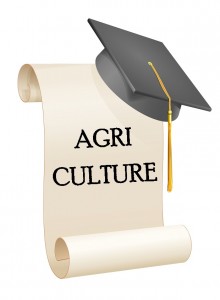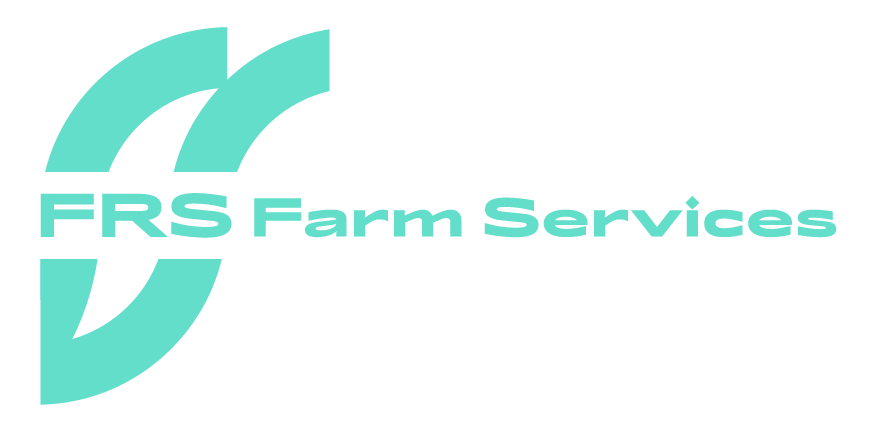 Peter Byrne, FRS Network CEO
Peter Byrne, FRS Network CEO
When Ireland was in the midst of the so called Celtic Tiger era, most young people were being actively discouraged from a career in farming and indeed the wider agricultural sector. However, this has all changed dramatically in recent years with our Agricultural Colleges becoming oversubscribed with applicants for the one year course.
When we think of Agriculture we automatically think of farming. In fact, the latest Census results show a 10% rise in the number of people working in farming bringing the total to 80,084. Only 6% of those with a qualification in agriculture are out of work, compared to an overall unemployment rate of 19% nationally.
A career in Agriculture is far greater and broader than “farming” alone. The Agri-business sector in Ireland is enormous. The manufacture of Food and drinks for example is Ireland’s most important indigenous industry with turnover of €24 billion. The food industry is a major employer right through from the large Co-operatives, like Glanbia, Kerry foods, Dairygold, through to the medium sized Co-operatives, like Thurles / Centenary, Arrabawn and down to the hundreds of small to medium sized enterprises (SMEs) who are specialising in various food products. The economy of Ireland may be in a fragile state, but the agri-food sector has been one of the few bright spots. There continues to be 230,000 jobs linked to the sector, and new innovations through the national agri-food strategy aim to create 30,000 new jobs going forward.
Ireland is the largest supplier of food and drink to the UK and is the biggest net exporter of dairy ingredients, beef and lamb in the EU. Ireland also produces 15% of the world’s infant formula.
On the supply side we have Agribusiness supplying feed, grain, chemicals, fertiliser, hardware and other supplies to the farming sector. All of these employ staff in management, stores, sales, distribution and accounts.
The service sector, such as Machinery Suppliers, Farm Relief Services, Milking Machine Companies, Agricultural Contractors etc. are another major employer in the Agri Business area.
Options for Students
The options for young people currently preparing to sit their Leaving Certificate are many and varied. The availability of information on careers in agriculture through the internet makes it much easier for both parents and students to examine all of the options available.
Personally, I would always recommend students to talk to people who know the sector well, such as staff in the Agricultural Colleges, Teagasc Advisors, recent Graduates of any of the 3rd level Colleges and of course Career Guidance Teachers in the schools.
-
Agricultural Colleges
I can recall when we had a choice of a dozen Agricultural Colleges in Ireland but over the years more than half of these have closed, but we still have excellent colleges in Kildalton (Kilkenny) Clonakilty (Cork) Ballyhaise (Cavan), which are State/Teagasc run colleges and Gurteen (Tipperary) , Mountbellew (Galway), Pallaskenry (Limerick), which are private colleges. All of these colleges provide the basic FETAC level 5 Certificate in Agriculture course. This course consists of 6 months course work at college and 3 months’ work experience on an approved training farm. Each college also provides further options for those who wish to specialise in some area such as Dairying, Drystock, Machinery, Equine Studies etc.
FETAC level 6 Advanced Certificate in Agriculture can then be undertaken which is a combination of farm placement, work on the home farm and course work at college.
Each year FRS are delighted to award a Scholarship to an agricultural college student that displays exceptional leadership qualities, giving that student the opportunity to gain invaluable ‘hands on’ practical exposure to the service industry through FRS. The Scholarship consists of a 3 months placement in an FRS Office to gain experience of how the business is run.
-
Institutes of Technology
Third level options are available through each of the Agricultural Colleges who have aligned themselves with various Institutes of Technology. These can lead to Bachelor Degree level in several disciplines and again full details are available for each Agricultural College and from the Institutes of Technology.
-
Horticulture
This is another huge area with Kildalton Horticultural College and the Botanic Gardens specialising in both Amenity Horticulture and Commercial Horticulture. Students may of course move on to degree courses in Horticulture through some of the Institutes of Technology and at UCD.
-
Forestry
There are over 11,000 people employed in various activities within the overall forestry sector in Ireland. These include planting, harvesting, transport and processing of timber. Courses are available from Ballyhaise Ag College and from UCD. Employment opportunities arise with the several very successful private Forestry Companies in addition to Coillte which is the Government owned company responsible for the management of the State’s forests of over one million acres.
-
UCD School of Agriculture and Food Sector
The Bachelor of Agricultural Science Degree in UCD offers a very broad range of options – details of which are on www.ucd.ie. I believe this is an excellent University degree that provides graduates with the qualifications to work across the whole agricultural spectrum from CEOs of some of our largest companies, to research, advisory, teaching, agribusiness, sales and of course farming.
Some Advice
The best advice I can offer young students trying to decide on their future is do as much research as you possibly can by:
- Examining every possible relevant websites, eg www.tegasc.ie, www.ucd.ie etc.
- Making direct contact with colleges
- Talking to people already working in the area that interests you
- Keeping an open mind on all options
Best of Luck to all students taking their exams next month.
E-mail questions and comments to marketing@frsnetwork.ie
About the Author
Peter Byrne is CEO of the FRS Network which includes FRS Farm Relief Services, FRS Fencing, FRS Recruitment, FRS Training and FRS Homecare.
Peter graduated from UCD in 1975 with a B.Agr Sc Degree and worked for the next 5 years with Macra na Feirme. During this time he was given responsibility for researching the potential of relief milking services and in 1980 when National Co-op Farm Relief Services was set up Peter was appointed Manager and has worked for the organisation since then in Roscrea.
Peter was the first recipient of the RDS Bank of Ireland Agricultural Achievement Award in 1987 and the Plunkett Award for Co-operative Endeavour in 1989.
He completed his M. Agr Sc by Thesis in 1989 and was President of the Agricultural Science Association in 1996. He is a former board member of Agri Aware.

